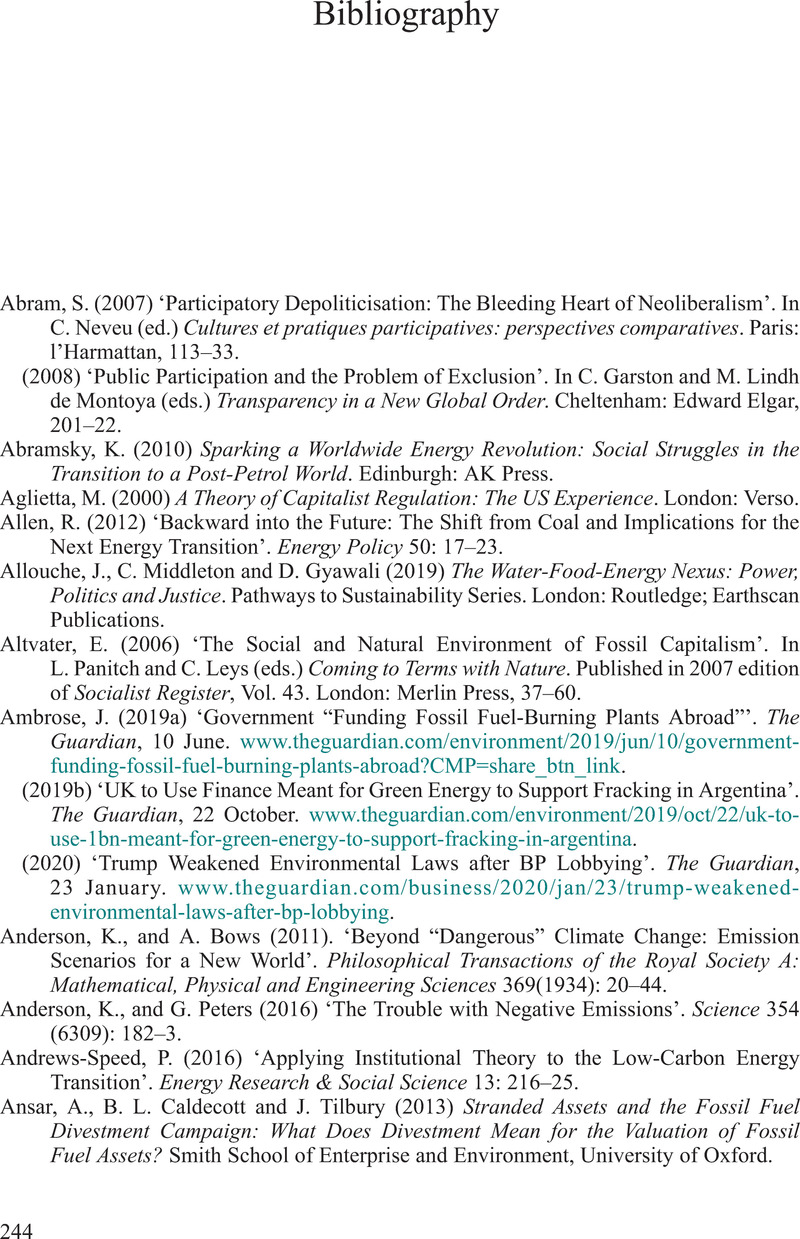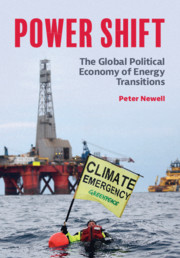Book contents
- Power Shift
- Reviews
- Power Shift
- Copyright page
- Contents
- Figures
- Tables
- Preface
- Acknowledgements
- Abbreviations
- 1 Introduction
- 2 Theorising Energy Transitions
- 3 Producing Energy Transitions
- 4 Financing Energy Transitions
- 5 Governing Energy Transitions
- 6 Mobilising Energy Transitions
- 7 Conclusions
- Notes
- Bibliography
- Index
- References
Bibliography
Published online by Cambridge University Press: 09 April 2021
- Power Shift
- Reviews
- Power Shift
- Copyright page
- Contents
- Figures
- Tables
- Preface
- Acknowledgements
- Abbreviations
- 1 Introduction
- 2 Theorising Energy Transitions
- 3 Producing Energy Transitions
- 4 Financing Energy Transitions
- 5 Governing Energy Transitions
- 6 Mobilising Energy Transitions
- 7 Conclusions
- Notes
- Bibliography
- Index
- References
Summary

- Type
- Chapter
- Information
- Power ShiftThe Global Political Economy of Energy Transitions, pp. 244 - 279Publisher: Cambridge University PressPrint publication year: 2021

